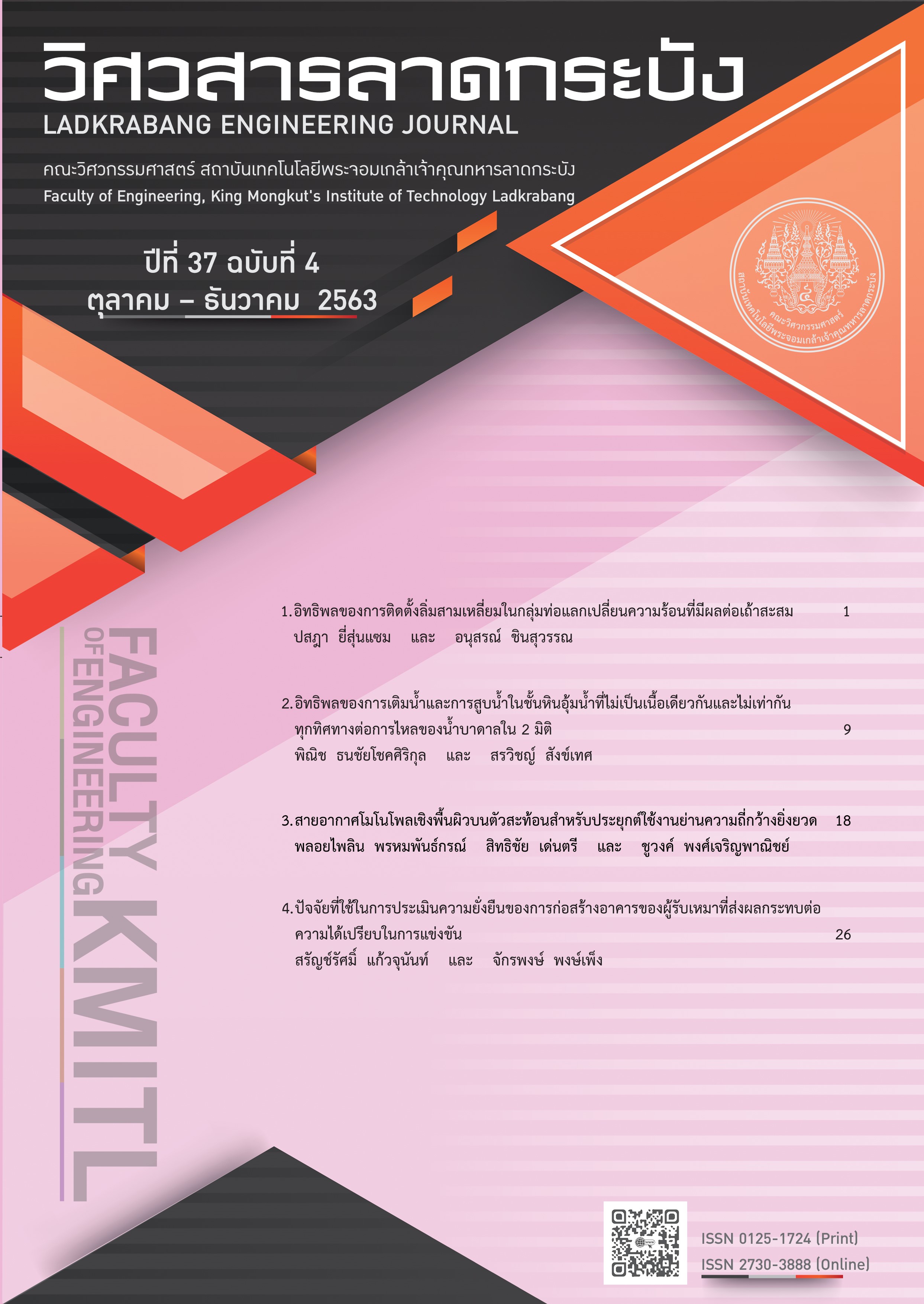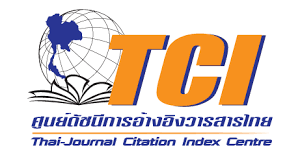Factors for Evaluating Building Sustainability of Contractors Affecting Competitive Advantage
Keywords:
factors, sustainability, building, contractor, competitive advantageAbstract
In the globalization era, construction is one of the industries that has a negative impact on the environment and society. To reduce the impact, contractors should improve their contruction toward sustainability and maintain economic viability. In addition, contractors have to adjust themselves according to the changes of future events.As such, the contractors have to look for the advantages to increase the chances to win the bidding. The literature review shows that few research works have explored the structure of factors for evaluating the construction sustainability of contractors affecting competitive advantage. Hence, the research was aimed to develop the structure of such factors. The research method was used survey research by using a questionnaire to take the opinions from people who have involved in strategic planning for contractors about the degree of importance of factors. The data were analyzed by (1) testing the structure of factors and (2) finding the level of influence of factors for evaluating construction sustainability of contractors on competitive advantage. The structure of factors can be divided into 4 groups with their weight of relative importance as follows: “personnel and the development of construction and surrounding community” (28.38%), “health and safety in construction” (24.32%), “moral and ethics” (24.32%), and “construction management and environment” (22.98%). These factors affect the competitive advantage in terms of “marketing capability” (18.51%), “efficiency and financial stability” (17.87%), “project management capability” (17.87%), “strategic management” (17.24%), “technology and innovation” (14.89%), and “bidding” (13.62%).The factors for evaluating the construction sustainability of contractors affect competitive advantage with a value of 0.89. These results can be used as a guideline to evaluate construction sustainability of contractors leading to a higher level of competitive advantage.
References
H. Pham and S. Y. Kim, “The effects of sustainable practices and managers’ leadership competences on sustainability performance of construction firms,” Sustainable Production and Consumption, Vol.20, pp.1-14, 2019.
S. W. Whang and S. Kim, “Balanced sustainable implementation in the construction industry: The perspective of Korean contractors,” Energy and Buildings, Vol.96, pp.76-85, 2015.
C. O. Cruz, P. Gaspar and J. Brito, “On the concept of sustainable sustainability: An application to the Portuguese construction sector,” Journal of Building Engineering, Vol.25, 2019.
M. Yilmaz and A. Bakis, “Sustainability in Construction Sector,” Procedia – Social and Behavioral Sciences, Vol.195, pp.2253-2262, 2015.
S. Norkhum and J. Pongpeng, “Factors for Evaluating Ethics of Subcontractors and Suppliers based on Organizational Structure: A view from Contractors,” The 16th National Convention on Civil Engineering, Engineering Institute of Thailand, Thailand, pp.1-10, 2011.
R. Pusamlee and J. Pongpeng, “Evaluating ethics of contractors: a view from owners,” The 13th National Convention on Civil Engineering, Engineering Institute of Thailand, Thailand, pp.1-6, 2008.
Y. Tan and L.-Y. Shen, “A fuzzy approach for assessing contractors’ competitiveness,” Engineering, Construction and Architectural Management, Vol.18, No.3, pp.234-247, 2011.
K. Samee and J. Pongpeng, “Structural Equation Model for Construction Equipment Selection and Contractor Competitive Advantages,” KSCE Journal of Civil Engineering, Vol.20, No.1, pp.77-89, 2016.
F. Orozco, A. Serpell and K. Molenarr,“Competitiveness factors and indexes for construction companies: findings of Chile,” Revista de la Construcción, Vol.10, No.1, pp.91-107, 2011.
Nurisra, N. Malahayati and Mahmuddin, “The main factor affecting the competitiveness of Contractor Company,” The 7th AIC-ICMR on Sciences and Engineering, Article ID 352, pp.012034, 2018.
S. Prasith-rathsint, “Social science research methodology,” 12thed., Fueang Fa Printing, Thailand, 2003.
SPSS Training. SPSS Training Series. IT Services, Queensland University of Technology, 2001.
E. Babbie, The Practice of Social Research, 5th ed., Wadsworth Publishing, Belmont, CA, 1989.
T. Silpcharu, Research and statistical data analysis by SPSS and AMOS, 13thed., S.R. Printing Mas Product, Thailand, 2012.
G. Rangsungnoen, Factor analysis by SPSS and Amos for research, Se-Education, Thailand, 2011.
Downloads
Published
How to Cite
Issue
Section
License
Copyright (c) 2020 Faculty of Engineering, King Mongkut’s Institute of Technology Ladkrabang

This work is licensed under a Creative Commons Attribution-NonCommercial-NoDerivatives 4.0 International License.
The published articles are copyrighted by the School of Engineering, King Mongkut's Institute of Technology Ladkrabang.
The statements contained in each article in this academic journal are the personal opinions of each author and are not related to King Mongkut's Institute of Technology Ladkrabang and other faculty members in the institute.
Responsibility for all elements of each article belongs to each author; If there are any mistakes, each author is solely responsible for his own articles.






